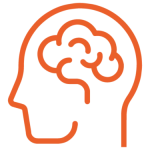SMI Resources
61.4%
of young adults 18-25 with SMI received treatment
67.4%
adults 26-49 with SMI received treatment.
71.0%
adults aged 50+ with SMI received treatment.
The following resources offer support in serving those with serious mental illness (SMI). You will find helpful information on topics such as integrated care, mental health and substance use.
Published Resources
Guide to Long-acting Medications
This guide is a call to action for psychiatrists, clinicians and mental health and substance use treatment organizations to increase the use of long-acting medications (LAMs) as a first-line treatment option.
Mass Violence in the United States: Definition, Prevalence, Causes, Impacts and Solutions
This report challenges common misconceptions about the relationship between serious mental illness and mass violence.
Technical Assistance for Providers
Early Psychosis Intervention Network (EPINET) — unites early psychosis clinics nationwide to share standardized data and best practices to enhance early detection, treatment and research for psychosis.
University of Florida Behavioral Health Hubs — provides collaborative and consultative psychiatric services primarily through referrals from primary care providers.
National Council Medical Director Institute — guides clinical standards and policies, addressing the psychiatric workforce shortage and promoting integrated, evidence-based and accessible mental health services across care settings.
Technical Assistance for Organizations
Center of Excellence for Integrated Health Solutions — advances the implementation of high-quality treatment for individuals with co-occurring physical and mental health conditions, including substance use disorders. The center offers evidence-informed training and technical assistance to a national audience, including a specific focus on the Collaborative Care Model.
Center on Integrated Health Care and Self-directed Recovery — advances innovative, evidence-based approaches that combine medical and behavioral health services to promote health, recovery and employment.
Center for Mental Health Implementation Support — helps organizations and systems successfully adopt, maintain and enhance mental health prevention, treatment and recovery initiatives, ensuring that high-quality care reaches those who need it most.
Certified Community Behavioral Health Clinics Technical Assistance Hub — Funded by the Substance Abuse and Mental Health Services Administration (SAMHSA) and operated by the National Council, the Certified Community Behavioral Health Clinic (CCBHC) National Training and Technical Assistance Center serves CCBHCs with learning communities and technical expert panels centered on children and families.
- In addition, the National Council operates SAMHSA’s CCBHC State Technical Assistance Center (S-TAC) which offers training and technical assistance for state CCBHCs. Working with the University of Connecticut’s Innovations Institute, S-TAC is developing a written resource on promising practices and innovations in serving children and youth in CCBHCs.
- The CCBHC Success Center is a hub for support, guidance and resources to help CCBHCs thrive. It provides comprehensive education on federal requirements, offers skill-building opportunities and shares best practices and recommendations, so CCBHCs can maximize the model’s potential and show measurable success.
ECHO Hub — uses proven adult learning techniques and interactive video technology to connect groups of community providers with specialists at centers of excellence in regular real-time collaborative sessions, using the ECHO Model™.
Homeless and Housing Resource Center — offers free training, guidance and support to help promote housing stability and recovery for people facing homelessness, particularly those with SMI or substance use challenges.
Thresholds — offers customized group trainings to help clinicians improve their skills in treating SMI, by offering trauma-informed, evidence-based education that promotes empathy, recovery-focused care and ongoing professional development.
Looking for More Support?

Case to Care Management

Request Consulting Services
Data is pulled from the 2024 National Survey on Drug Use and Health (NSDUH).
